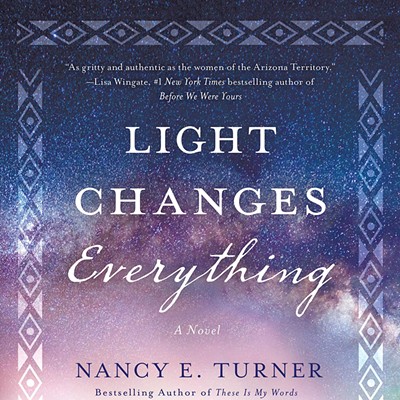For whom is this not the case? you might rightly ask, and the events of Middlesex confirm how interwoven our sex and sex drive is in the fabric of our identity. But the stitch work for Calliope's life is of a much more complex pattern than average: Calliope is an intersexual; he--and, as far as our range of pronouns go, he is a he--has a vagina that leads to nowhere and an inoperative penis. He was raised as a girl and became a boy in pubescence. This is the irresistible premise of Middlesex, a long, entertaining family epic narrated by middle-aged Calliope, now known as Cal, as he tries to unravel the thread of his ancestry all the way back to its original cocoon; the first knot around the Three Fates' spool of life, to use a Greek motif.
Indeed, the Greek motif plays a huge part in Middlesex, and Eugenides uses it playfully. "Sorry if I get a little Homeric at times," Cal says of his narration. "That's in the genes too." But beyond the classical references to Hermaphroditus and Teresias, Cal's bloodline, and therefore our story, traces back to the Greek village of Bithnios, in what is now Turkey. We start with Desdemona and Lefty, Cal's grandparents, and the dirty family secret that Cal thinks is crucial to his identity: namely, that his grandparents are also brother and sister.
Clearly, serious genetic, ethical and even religious quandaries are being approached here, but before Cal can dwell upon any of the issues, the uncanny trajectory of history keeps getting in the way. With Cal's birth at the hub of the tale, Middlesex follows the family through three generations and from Bithnios to Detroit, bumping into many of the cardinal events of the 20th century along the way. The Stephanides family has a definite Forrest Gumpian luster in the way they are unconsciously involved in all of these historical highlights, from the Greek and Turkish wars to the rise of the Nation of Islam to '70s race riots. And history has never moved more smoothly than through Cal's rose-tinted lens. His narration is refreshingly cheerful, even campy sometimes, in comparison to a normal piece of gloom-and-doom contemporary fiction.
But while there are fun moments, the whole reminiscence begs an important question: what in Zeus's name does any of it have to do with being a hermaphrodite? I hate to be the one to report it but, ultimately, the answer is nothing.
Certainly, Eugenides dabbles with some of the big themes that he hints at in the start, like the ambiguity of gender, the distinction between hormones and love, and nature versus nurture. He even delves cleverly into the classic Greek conundrum of fate and coincidence. "The themes of my life," Cal augurs. "Chance and sex."
But for the most part these oracles are left unfulfilled. Cal alludes, for example, to the far-fetched possibility that the massacre of thousands of Greeks in Smyrna was the divine retribution for his grandparents' incest. And is he also claiming that his own unique genitalia are a continuation of this curse? Perhaps, but every time Cal touches upon a larger issue it is promptly interrupted in favor of some familial tangent about his brother's acid phase or his father's racial politics or some such other bit of light-hearted anecdote. Even Cal's childhood (as Callie) avoids the subject, because a myopic doctor kept missing the diagnosis. The most insight he can give us into his condition is that it was "something I knew all along and yet didn't know." Until the extreme end, his story is as nearly as traditional a coming-of-age as you'll find.
When introducing a gun his father owned, Cal references the famous literary truism coined by Anton Chekhov. Chekhov said that, in a play, if there is a gun on the wall in act one, that gun must go off by act three. But Calliope is like Eugenides's own disappointingly unfired gun. The question kept coming up: why have an intersexual main character if you never explore the nature of being intersexual? I think that the story Eugenides was really interested in writing was simply that of a child growing up in Detroit amongst a Greek family. Calliope could have been just about anything to fill that role--a midget, a mind reader, or how about a mime? In his wonderful memoir Stop-time, Frank Conroy got much more mileage with just a boy and a yo-yo.
And all this leads to an even more alarming thought. Could it be that Calliope was given his spectacular, and utterly superfluous, condition--and forgive me if I calumniate--just to sell books? It's not impossible. Eugenides's first novel, The Virgin Suicides, was a great success, and publisher pressure can affect a writer in not so noble ways.
Then again, this may be somewhat unfair. If Middlesex is superficial, it is also well written and charming, often amusing and sometimes quite lovely. It is, in short, an easy, breezy, after-work read. But the protagonist is a hermaphrodite, for Hera's sake! Can you blame me for wanting more?








